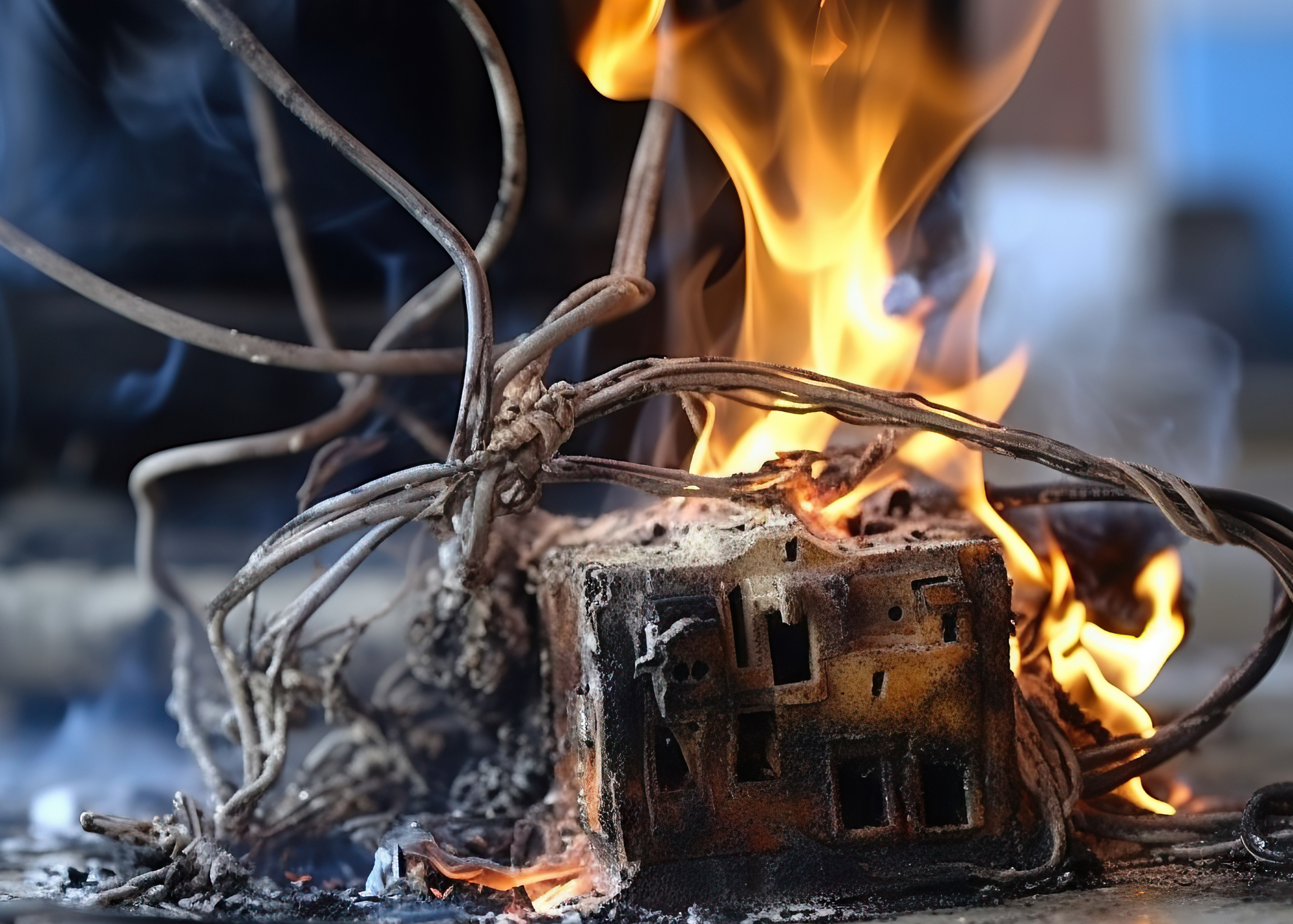Recognizing the Signs of Possible Overloaded Circuits
Jan. 8, 2024

Some homes face challenges in meeting the demand for power. One common issue that arises is overloaded circuits, a concern that compromises the efficiency of electrical systems and poses safety risks. Signs of an overloaded electrical circuit can manifest in various ways. Recognizing these signs can reduce the risk of electrical hazards that may be detrimental to the safety of your home and your family's well-being. In this blog post, we'll discuss identifying potentially overloaded circuits.
Recognizing the Signs of Possible Overloaded Circuits:
1. Frequently Tripping Circuit Breakers can signal that the circuit is drawing more current than it can handle. This is a protective mechanism to prevent overheating and potential fire hazards.
2. Dimming or Flickering Lights may indicate an overloaded circuit, especially when using high-power appliances, such as space heaters, deep fryers, microwave ovens, espresso machines with built-in grinders, and more, or when turning on multiple devices.
3. Warm or Discolored Outlets and Switches may signify overheating and should be addressed immediately.
4. A Burning Smell, particularly near outlets, switches, or an electrical panel, is a warning sign of potential electrical issues. It could pose a significant fire hazard risk.
5. Frequently Tripping GFI Outlets may suggest a potential overload or a ground fault issue. GFI outlets are designed to trip when they detect imbalances in electrical currents.
6. Appliances Not Operating at Full Capacity or struggling to function normally may indicate an insufficient power supply due to an overloaded circuit. This can result in reduced efficiency, premature wear, and decreased life of an appliance.
7. Electrical Sparks present when plugging or unplugging devices may indicate a dangerous electrical problem. When sparks arc due to an overloaded circuit, it poses a significant fire risk.
8. Buzzing or Crackling Sounds coming from outlets, switches, or an electrical panel may indicate an overloaded circuit or loose connections.
9. Frequently Tripping Main Breakers in your electrical panel may indicate an overload in the entire electrical system. This situation requires immediate attention from a licensed electrician.
10. Outlets That Suddenly Stop Working or devices intermittently losing power may indicate overloaded circuits. It may also suggest wiring issues that require professional assessment.
11. A Sudden Increase in Your Electric Bill could be due to inefficient operation from overloaded circuits. Overloaded circuits can lead to higher energy consumption.
If you see any of these signs, it is crucial to have a licensed electrician assess the situation and address potential issues immediately to ensure safety and the efficiency of your home's electrical system.
Recognizing the Signs of Possible Overloaded Circuits:
1. Frequently Tripping Circuit Breakers can signal that the circuit is drawing more current than it can handle. This is a protective mechanism to prevent overheating and potential fire hazards.
2. Dimming or Flickering Lights may indicate an overloaded circuit, especially when using high-power appliances, such as space heaters, deep fryers, microwave ovens, espresso machines with built-in grinders, and more, or when turning on multiple devices.
3. Warm or Discolored Outlets and Switches may signify overheating and should be addressed immediately.
4. A Burning Smell, particularly near outlets, switches, or an electrical panel, is a warning sign of potential electrical issues. It could pose a significant fire hazard risk.
5. Frequently Tripping GFI Outlets may suggest a potential overload or a ground fault issue. GFI outlets are designed to trip when they detect imbalances in electrical currents.
6. Appliances Not Operating at Full Capacity or struggling to function normally may indicate an insufficient power supply due to an overloaded circuit. This can result in reduced efficiency, premature wear, and decreased life of an appliance.
7. Electrical Sparks present when plugging or unplugging devices may indicate a dangerous electrical problem. When sparks arc due to an overloaded circuit, it poses a significant fire risk.
8. Buzzing or Crackling Sounds coming from outlets, switches, or an electrical panel may indicate an overloaded circuit or loose connections.
9. Frequently Tripping Main Breakers in your electrical panel may indicate an overload in the entire electrical system. This situation requires immediate attention from a licensed electrician.
10. Outlets That Suddenly Stop Working or devices intermittently losing power may indicate overloaded circuits. It may also suggest wiring issues that require professional assessment.
11. A Sudden Increase in Your Electric Bill could be due to inefficient operation from overloaded circuits. Overloaded circuits can lead to higher energy consumption.
If you see any of these signs, it is crucial to have a licensed electrician assess the situation and address potential issues immediately to ensure safety and the efficiency of your home's electrical system.
